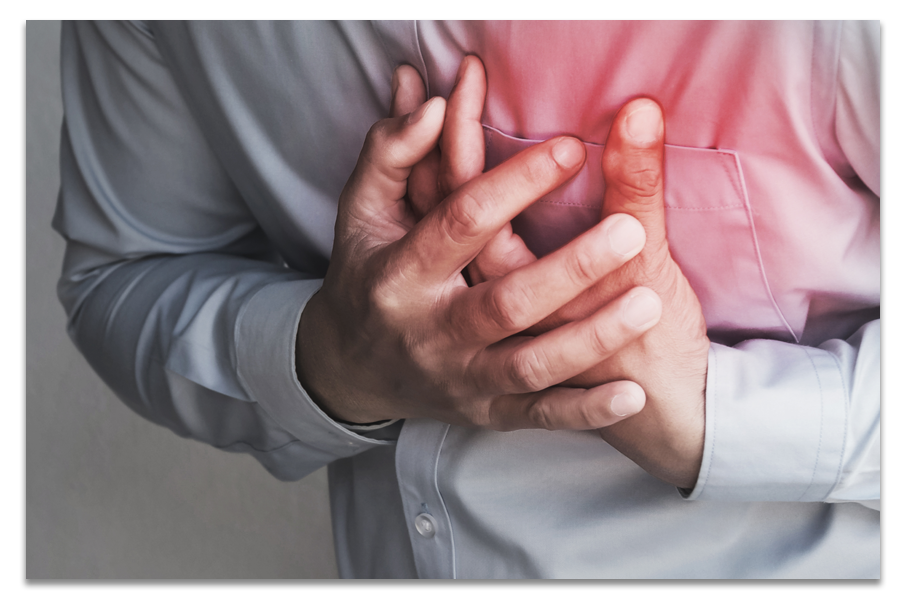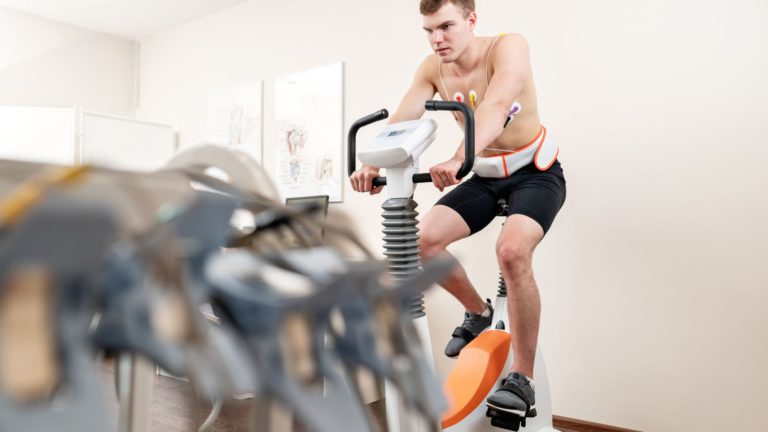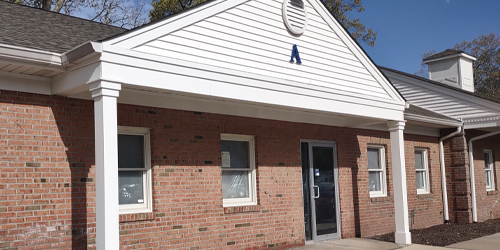Nuclear Stress Tests at ZP
A nuclear stress test (also referred to as a cardiac diagnostic test, cardiopulmonary exercise test, or abbreviated CPX test) measures the heart's ability to respond to external stress in a controlled clinical environment. The stress response is induced by exercise or by drug stimulation. This exam is used to diagnose various symptoms, including chest pain, shortness of breath, or palpitations. It helps to identify abnormal heart rhythms, to see if enough blood flows to your heart, as you get more active, see how well your heart valves are working, and to find out if it's likely that you have coronary heart disease and need more testing.
At ZP, we offer Single Photon Emission Computed Tomography (SPECT) imaging, which uses specialized cameras to visualize the internal organs at work, as well as the body's anatomy through three-dimensional images. Cardiac Stress Tests are currently being performed in our Massapequa and Smithtown East locations.
A physician may recommend a Nuclear Stress Test to:
- Diagnose coronary artery disease
- Diagnose a possible heart-related cause of symptoms such as chest pain, shortness of breath or lightheadedness
- Determine a safe level of exercise
- Check the effectiveness of procedures done to improve coronary artery circulation in patients with coronary artery disease
- Predict risk of dangerous heart-related conditions such as a heart attack.
How does a Nuclear Stress Test work?
During all types of stress testing, a doctor, nurse, or technician will always be with you to closely check your health status.
Before you start the "stress" part of a stress test, the nurse will put sticky patches called electrodes on the skin of your chest, arms, and legs. To help an electrode stick to the skin, the nurse may have to shave a patch of hair where the electrode will be attached.
The electrodes will be connected to an EKG (electrocardiogram) machine. This machine records your heart's electrical activity. It shows how fast your heart is beating and the heart's rhythm (steady or irregular). An EKG also records the strength and timing of electrical signals as they pass through your heart.
The nurse will put a blood pressure cuff on your arm to check your blood pressure during the stress test. (The cuff will feel tight on your arm when it expands every few minutes.) Also, you might have to breathe into a special tube so the gases you breathe out can be measured.
Next, you'll exercise on a treadmill or stationary bike. If such exercise poses a problem for you, you might turn a crank with your arms instead. During the test, the exercise level will get harder. You can stop whenever you feel the exercise is too much for you.
What happens during a Nuclear Stress Test?
If you can't exercise, medicine might be injected into a vein in your arm or hand. The medicine will increase blood flow through your coronary arteries and make your heart beat fast, as it would during exercise. You can then have the stress test.
The medicine may make you flushed and anxious, but the effects go away as soon as the test is over. The medicine also may give you a headache.
While you're exercising or getting medicine to make your heart work harder, the nurse will ask you how you're feeling. You should tell him or her if you feel chest pain, short of breath, or dizzy. The exercise or medicine infusion will continue until you reach a target heart rate, or until you:
- Feel moderate to severe chest pain
- Get too out of breath to continue
- Develop abnormally high or low blood pressure or an irregular heartbeat
- Become dizzy
The nurse will continue to check your heart functions and blood pressure after the test until they return to normal levels.
The "stress" part of a stress test (when your heart is working hard) usually lasts about 15 minutes or less. However, there's prep time before the test and monitoring time afterward. Both extend the total test time to about an hour for a standard stress test, and up to three hours or more for some imaging stress tests.
How do I prepare for a Nuclear Stress Test?
Stress testing is done in a doctor’s office or at a medical center or hospital. You should wear shoes and clothes in which you can exercise comfortably. Sometimes you’re given a gown to wear during the test.
Your doctor might ask you to fast (not eat or drink anything but water) for a short time before the test. If you're diabetic, ask your doctor whether you need to adjust your medicines on the day of the test.
For some stress tests, you can't drink coffee or other caffeinated drinks for a day before the test. Certain over-the-counter or prescription medicines also may interfere with some stress tests. Ask your doctor whether you need to avoid certain drinks or food or change how you take your medicine before the test.
If you use an inhaler for asthma or other breathing problems, bring it to the test. Make sure you let the doctor know that you use it.

Food Donation to Pronto of Long Island
Zwanger-Pesiri Radiology, Long Island’s leading provider of diagnostic imaging services, is proud to announce the…
ZP Hauppauge Grand Opening
Zwanger-Pesiri Radiology is proud to announce the grand opening of our newest state-of-the-art location in…
Best of Long Island 2025
Zwanger-Pesiri Radiology is deeply honored and grateful to the Long Island community for voting us…
What Is a Cardiac Stress Test?
Cardiovascular health is incredibly important for all of us — and sometimes, a cardiac stress…
Wading River Office Now Open
We are thrilled to announce that Zwanger-Pesiri Radiology is expanding its presence with a brand-new…





